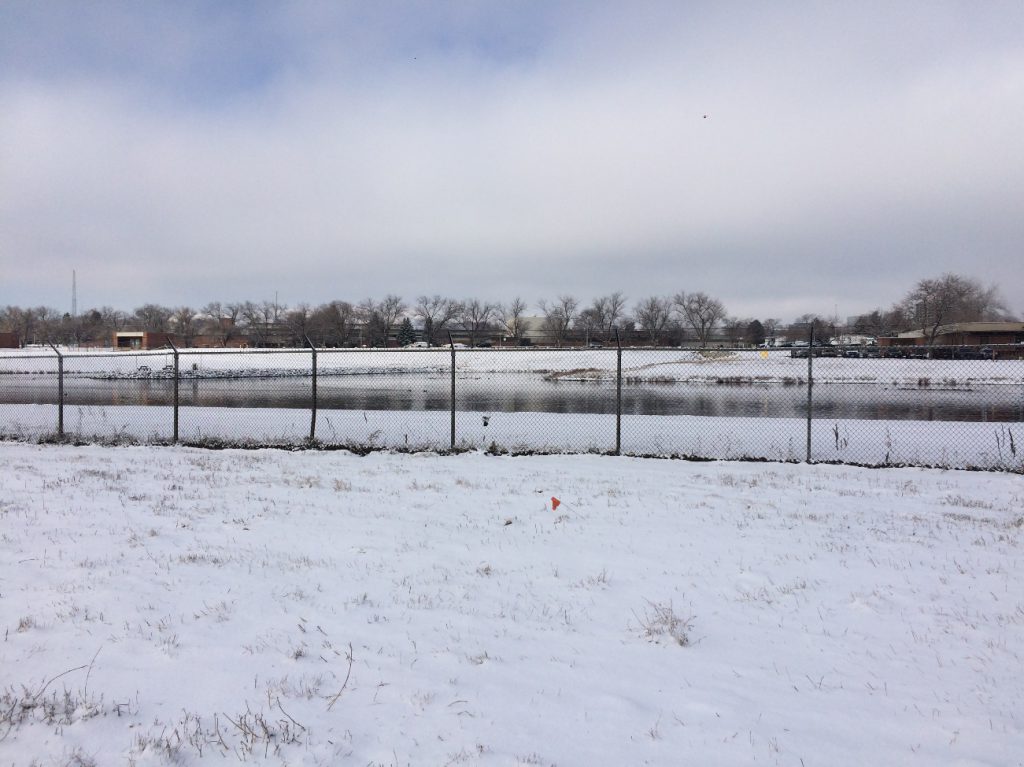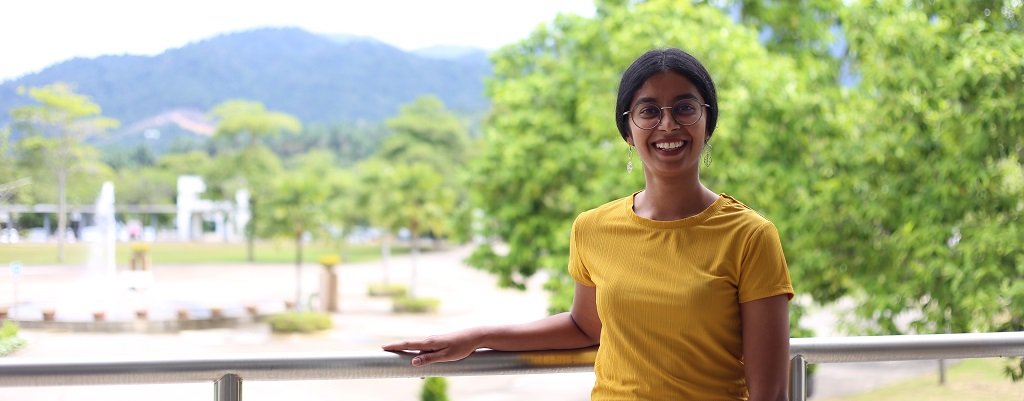
April 1, 2020, by Lisa Chin
Research Visit to the United States Geological Survey National Training Center in Colorado
This post is written by Karen Thivya Lourdes, recipient of the International Research Collaboration Award (IRCA) 2020 and PhD student at the School of Environmental and Geographical Sciences.
In March 2020, I had conducted a research visit to the Geosciences and Environmental Change Science Center (GECSC) at the United States Geological Survey (USGS) National Training Center in Denver, Colorado, USA, funded by the Graduate School, University of Nottingham Malaysia, under the International Research Collaboration Award 2020.
The USGS is a world leading scientific agency that collects, monitors, analyses and provides information on natural resource conditions. It is the United States’ (and the world’s) largest water, earth, biological science and civilian mapping agency. As an environmental scientist, this is a huge opportunity to partake in. The end-goal of my visit is a publication on applying Social Valuation of Ecosystem Services (SolVES) and Artificial Intelligence for Ecosystem Services (ARIES) in Greater Kuala Lumpur. This paper would be a collaboration between the USGS team and the Landscape Ecology and Conservation Laboratory, School of Environmental and Geographical Sciences, University of Nottingham. To date, there is a limited number of research publications that have mapped and quantified ecosystem services in Malaysia. The application of SolVES and ARIES in Greater Kuala Lumpur, through this project, would be the first of its kind in Malaysia and would be one of the first applications of SolVES to an urban environment.
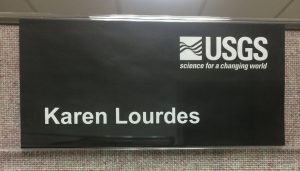
Karen Thivya Lourdes is a PhD student at the School of Environmental and Geographical Sciences, supervised by Dr Alexander Lechner.
During my visit at the GECSC, I spent a huge portion of my time conducting presentations on my research and having in-depth discussions about applying SolVES, ARIES and Integrated Valuation of Ecosystem Services and Tradeoffs (InVEST, which is another ecosystem assessment tool) in peri-urban Greater Kuala Lumpur with my team of collaborators. On my first day, I was asked to present on my research to the entire team. I found this beyond intimidating but thankfully my supervisory team here at Nottingham had asked me to prepare a full presentation for the USGS team, which I had also practiced with my supervisors the week before! When I was not presenting or in a team brainstorming session, I was in one-on-one discussions with my collaborators. During these individual sessions, my collaborators took the time to guide me through running various models on SolVES and ARIES, troubleshooting errors and providing tips for analysing my data.
Throughout my time there, I was exposed to various methods of pre-processing data, sources for geophysical data as well as ideas for research beyond my PhD. I was also introduced to various members of the USGS, those who are not part of my collaborative team. One such member, Dr Mehdi Heris, is a postdoctoral researcher who works collaboratively with NASA. During my meeting with Mehdi, I was enlightened on the use of Python, a high-level programming language, in remoting sensing and big data management. Python had always been of interested to me and in gaining exposure to the applications of Python in remote sensing and geographic information system (GIS), I was determined to pick up this skill and Mehdi was very helpful in providing guides and tips to achieving this.
My collaborators were very courteous people. To welcome me to the GECSC, the entire team took me to a Mexican restaurant for lunch. They were very open in sharing with me about the American culture and were inquisitive about the culture in Malaysia. Every now and then, I would have have lunch with other researchers who shared the workspace with me. I learned a fair amount about how the USGS functions as part of the Federal Government Department. The structure of the system and the system itself was different to how geophysical data is managed in Malaysia. It was interesting to learn of conservation efforts and management practices in a developed country, noting how and why it differs from a developing country like Malaysia. Having been exposed to environmental research in tropical Malaysia, it was also intriguing to learn how environmental research in Denver, Colorado differs due to its arid climate and high elevation.
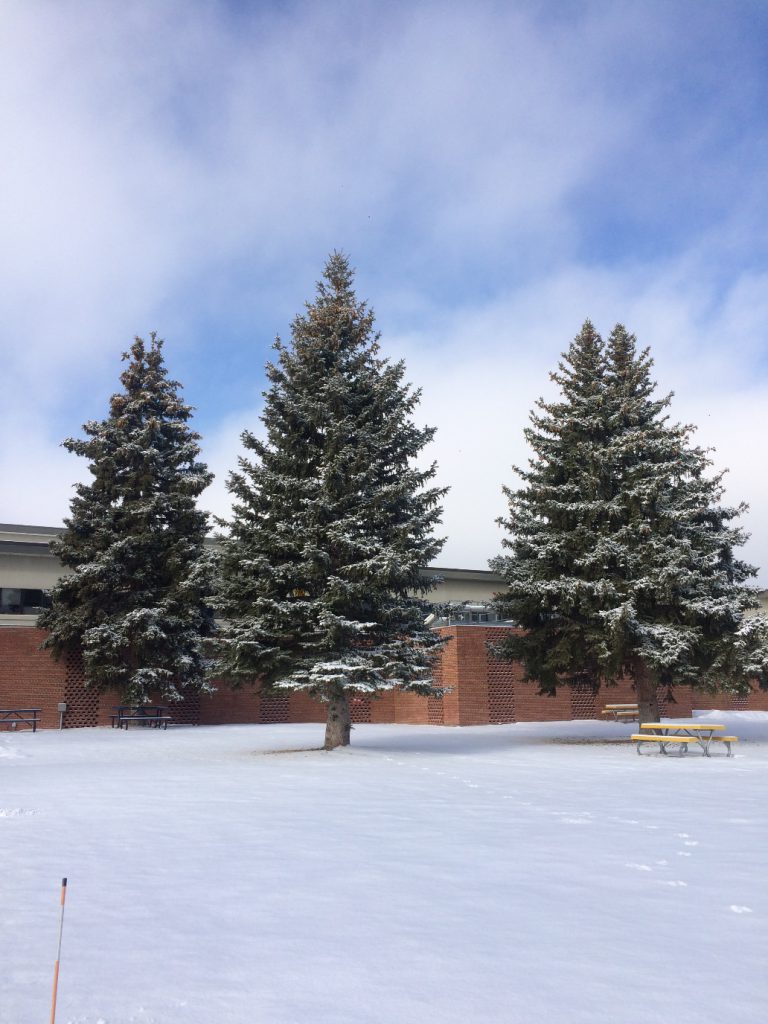 The climate in Denver is so different to Kuala Lumpur. I stayed in Lakewood, a suburban area about 15 minutes by train from the city. On my first night there, it snowed heavily and the view the next morning was absolutely picturesque! However, being unused to such cold weather, I was suffering from mild nose bleeds. Further into the week, the weather was getting warmer and the grass was beginning to turn from yellow to green. I was looking forward to morning spring walks to work (it was about a 30-minute walk to the USGS campus from my Airbnb). Unfortunately, due to the COVID-19 pandemic, I had to cut my visit short and return to Malaysia early.
The climate in Denver is so different to Kuala Lumpur. I stayed in Lakewood, a suburban area about 15 minutes by train from the city. On my first night there, it snowed heavily and the view the next morning was absolutely picturesque! However, being unused to such cold weather, I was suffering from mild nose bleeds. Further into the week, the weather was getting warmer and the grass was beginning to turn from yellow to green. I was looking forward to morning spring walks to work (it was about a 30-minute walk to the USGS campus from my Airbnb). Unfortunately, due to the COVID-19 pandemic, I had to cut my visit short and return to Malaysia early.
Before I left, I had the opportunity of speaking to each of my collaborators regarding their own research interests and ongoing projects. During this discussion, we explored how Kuala Lumpur could be a part of some of the international projects that the USGS was involved in. We also discussed how their current projects could be modified and applied in Southeast Asia. The ideas were endless and I promoted the idea of future collaborations, aside from my PhD research, with the University of Nottingham Malaysia.
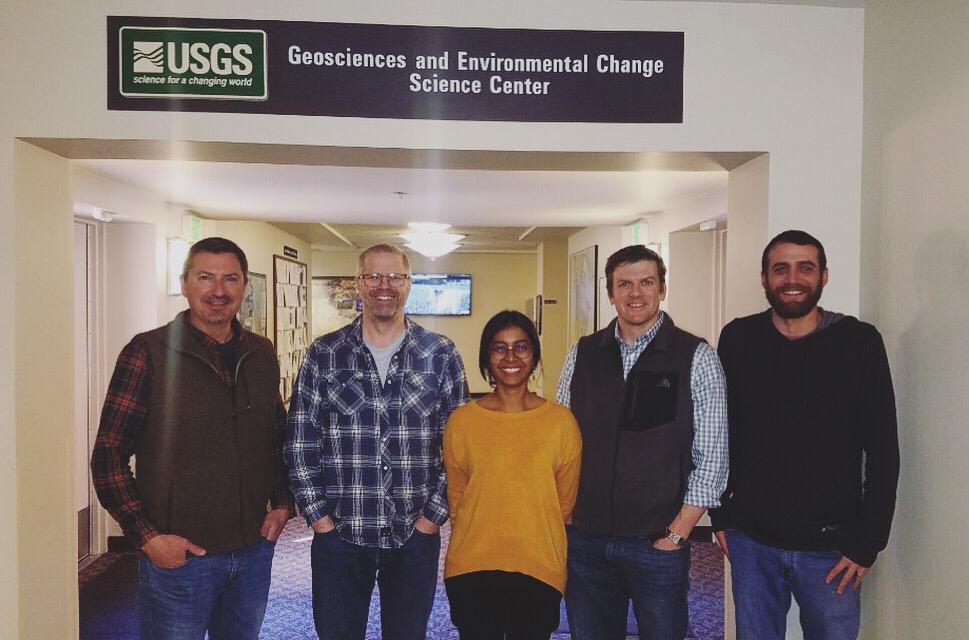
Research visit to the United States Geological Survey National Training Center in Colorado, by Karen Thivya Lourdes
The visit, although brief, was an extraordinary opportunity and a highlight of my PhD journey. It was a great learning experience, one that has strongly benefitted my growth as an early career researcher.
About the award
IRCA is a competitive award to promote research mobility by enabling the award recipients to undertake a research visit to a leading international research institution of their choice.
This year we offered two awards for postgraduate research students and two inaugural awards for early career researchers, worth RM15,000 each.
About the award recipient
Karen Thivya Lourdes was announced as one of the winners of the IRCA 2020. A signing ceremony of agreement was held on Wednesday 22 January 2020 where it was witnessed by Professor Deborah Hall, Vice-Provost of Research and Knowledge Exchange.
For any queries or more information, please email us at graduateschool@nottingham.edu.my.
-
Post a comment

